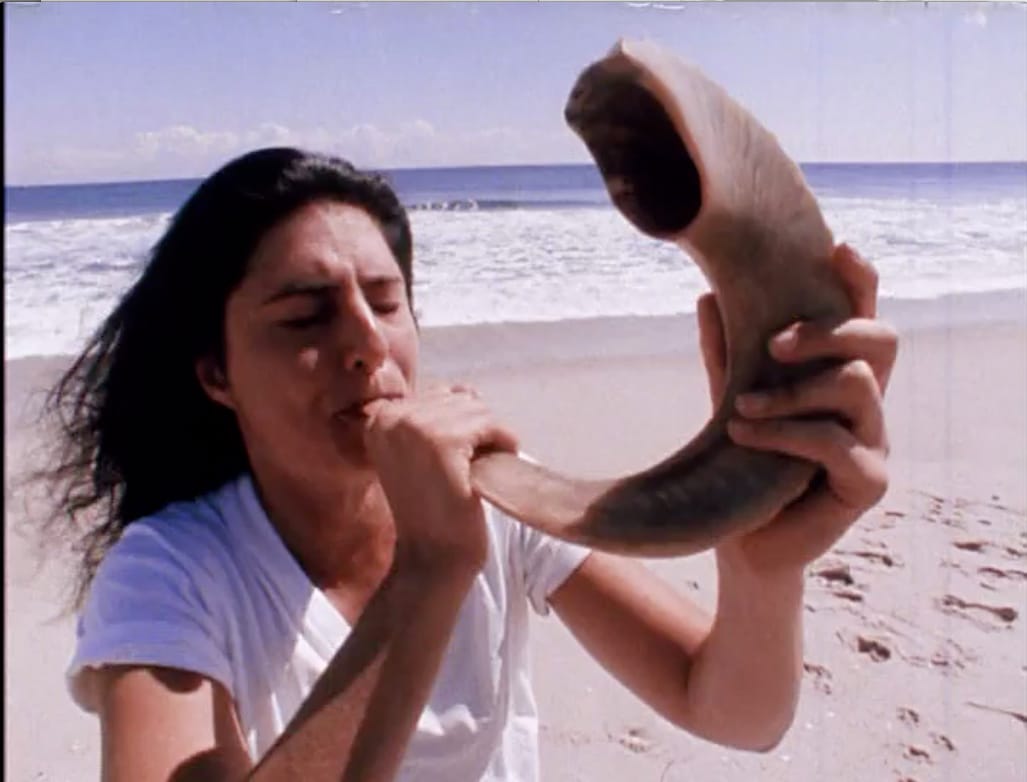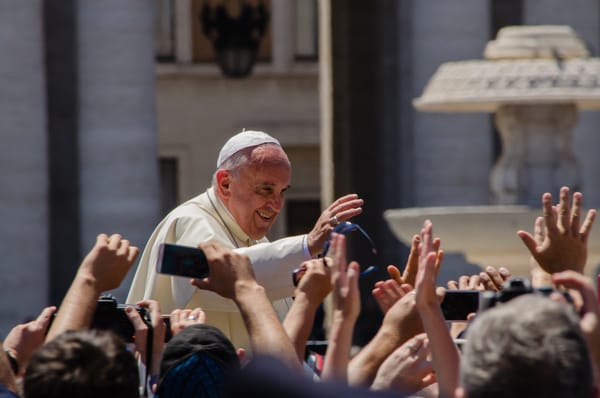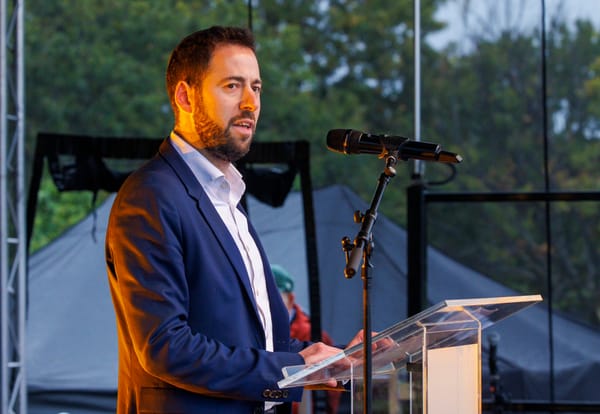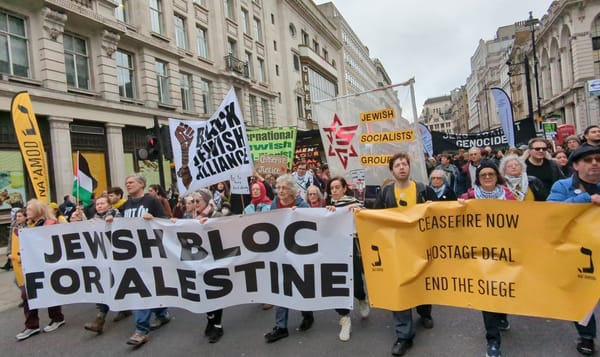Treyf review
Part political diary, part love letter to messy Jewishness, Treyf is the radical film exploring what it means to be an outsider.

“To be treyf is to be an outsider.”
The line sat with me long after Treyf – the film about the intimate lives and relationship of two Jewish lesbians, Alisa Lebow and Cynthia Madansky – ended. It lingered, like a memory you didn’t mean to revisit. Watching it again in 2025, at a Na’amod screening, I found myself laughing, aching, and marvelling at how a film made in 1998 still holds space for contradiction without trying to tie it up with a neat bow.
Treyf is often called a documentary, but it’s more like a collage – part confessional, part political diary, part love letter to messy Jewishness. Its title means “unkosher,” but not just in the food sense. It’s about what gets cast out. Lesbian. Anti-Zionist. Leftist. The kind of Jew who feels like an outsider even at synagogue.
The film opens in a tone that’s so unserious it almost dares you not to take it seriously. 90s grocery store music. Grape juice. Matzah ball mix. Chocolate cake box mix. It’s hilarious. It's so Jewish. And it’s in this levity that Treyf starts to lay its traps – because the questions it raises don’t stay light for long.
There’s a joyfully 90s graininess to the footage: wide denim, earnest voiceovers, VHS tape rewind fuzz. The directors appear throughout, mostly Alisa, narrating her own story with a dry wit that disarms before it cuts deep. Cynthia, too, speaks of moments that stay with you: remembering a seder where she and her girlfriend were the only ones who knew the blessings. That memory – passed down orally, like so much of Jewish tradition — landed upon me like a punch.
And then the politics edge in. Not with grand declarations, but with texture: Cynthia’s mother stumbling over the word “lesbian.” Footage of Zionist propaganda, Jewish summer camps, soldiers. Protest signs. Alisa’s father, in his final years, reflecting on his disappointments. These moments aren’t digressions — they’re the point; the personal is the political, whether we want it to be or not.
But what hit me hardest this time wasn’t the grief. It was the humour.
The voicemail montage – people leaving messages hoping to be included in the film (“I’m not super Jewish, so I don’t know if there’s a criteria?”) — had the entire room wheezing. The hosts perform their due diligence in preparing a feast of jelly, gefilte fish, and challah, and as the Barry Sisters belt out Aishes Chayil, the crowd bursts into spontaneous dance, lifting Cynthia and Alisa onto chairs, much like in Jewish simchas. It’s a burst of joy, a riot of movement and connection. One of the interviewers shrugs upon being asked what’s Jewish about her, “Well, I’m not circumcised if that’s what you mean!” and the conversation spirals in the best possible way. It’s chaos. It’s glorious.
The soundtrack, written by Zeena Parkins, is a standout in itself. Quirky, klezmer-inflected, and emotionally dexterous, it manages to be both playful and aching — perfectly mirroring the film's mood shifts. It doesn’t tell you how to feel, but it gives you space to.
There’s a moment I can’t stop thinking about: two women attempting to stack stones into a little cairn. They keep falling. They try again. It’s wordless, mundane, and completely devastating. That’s how this film handles grief — not with violins and climaxes, but through the quiet repetition of trying to build something that might not stand.
The final scene, in a New York deli, feels like a homecoming. Alisa and Cynthia order bagels in that hyper-specific Jewish way (“Sesame. No scallion”). I found myself instinctively adding “rude” under my breath — a note of affectionate critique that anyone raised on a diet of Jewish mothers and Brooklyn delis will understand. It’s small, intimate, and unexpectedly moving. They pass iconic Jewish landmarks, unbothered and radiant. It’s not resolution, but something warmer: a kind of peaceful defiance.
What makes Treyf so enduring is its refusal to simplify. It doesn’t offer the comfort of a neat takeaway. It gives us women wrestling with identity, with each other, with their communities. It gives us joy, confusion, and longing. It lets things stay unresolved.
Watching it now, in 2025, with the last year and a half of the devastating siege on Gaza, and the uncomfortable conversations happening in Jewish communities, Treyf still feels radical. It’s not radical in its anger, though it’s angry, but in its tenderness – its insistence on love, on humour, on being Jewish in ways that don’t always get a seat at the table.
To have grief is to be an outsider. Maybe. But to have a film like Treyf is to know we’re not the only ones outside the tent, waving, laughing, shouting, saying our brachas, and asking what dares not be asked.
Georgina (Gigi) Daniels is a journalist, programmer, and Volunteer Manager at Diverse UK




